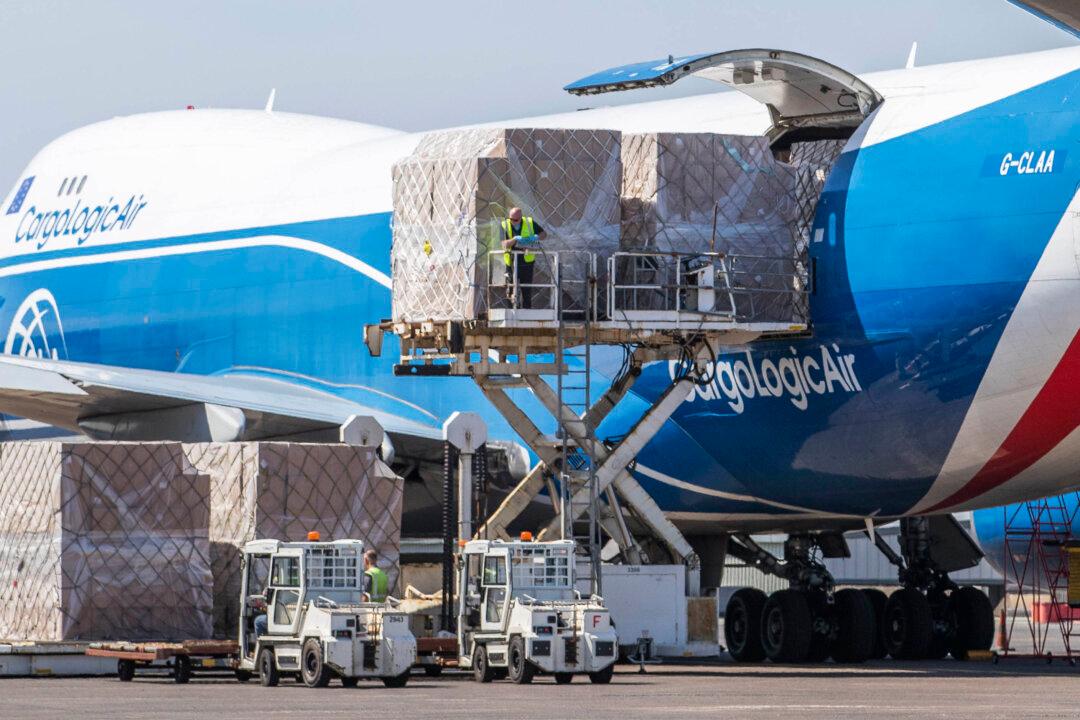More than 17 percent of the imported health supplies on the UK’s “disaster relief list” came from China, a new report said.
The report (pdf), published on Tuesday by British think tank Civitas, said the figure was at 6 percent in 2019 but almost tripled since the CCP (Chinese Communist Party) virus pandemic.





